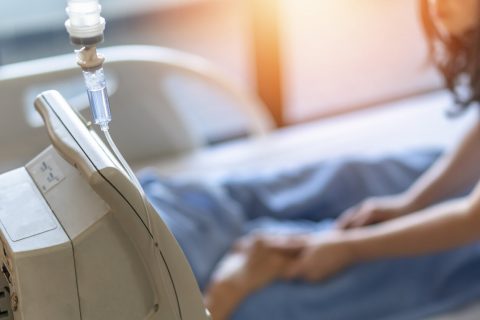BD Alaris Systems Lawsuits
Lawyers are filing BD Alaris Systems lawsuits for people who suffered a serious injury, coma or death after receiving infusions from a faulty Alaris pump. Between 2019 and 2020, Becton, Dickinson and Company (BD) recalled millions of its BD Alaris System devices for defective software, hardware and other issues because of serious injuries and at least one death.
The BD Alaris System is an infusion pump system that delivers fluids, medications, blood and blood products to adults, children and babies. Hospitals and health care facilities across the United States depend on these infusion pumps to deliver lifesaving fluids and medications to patients.
Infusion pumps such as those manufactured by BD often deliver high-risk medications and critical fluids, and when they fail it can lead to serious patient safety issues, according to the U.S. Food and Drug Administration.
Over the years, BD has issued several recalls for its Alaris System infusion pumps. In 2020 alone, the company issued four recalls affecting more than one million devices sold in the United States.
The FDA classified most of the 2020 recalls as class one recalls, meaning the recalled device may cause serious injuries and death.
“We stand behind the safety and clinical benefits of the Alaris System, which is used in the care of approximately 70 percent of patients undergoing infusion therapy in the U.S.,” said Ranjeet Banerjee, BD Worldwide President, Medication Management Solutions in a Feb. 14, 2020 customer letter.
Reasons for Recall
BD issued recalls of its 8000 series infusion pumps for various hardware, software and user-related errors. BD said these errors could lead to over and under infusion, interruption of infusion and infusion delay.
High-risk patients receiving life-saving medications have the greatest risk of harm from delays or interruption of infusion. Problems with infusion could even lead to death for these patients, BD said in its Aug. 4, 2020 Urgent Medical Device Recall letter for its BD Alaris PC Unit Model 8015 PC Unit Front Case with Keypad Replacement Kits.
“For some hospitals, it could be a financial issue (to not replace the pumps) and then a quality issue,” Joseph Spallina, a health care consultant with Arvina Group LLC, told Crains. “This is a very serious recall, no doubt about it. The facts are the FDA said using these devices can cause serious injury or death to patients.”
A BD spokesperson told Crains that even though the company issued a voluntary recall, “a recall doesn’t mean that devices have to be returned or stop being used.”
- Software and system errors (class one recall)
- Alarm failures for low battery and “end of infusion” (class one recall)
- Use-related errors (class one recall)
- Delay options programming (class one recall)
- Damaged inter-unit interface (IUI) connectors (class one recall)
- Broken elements on module platen (class one recall)
- Improperly secured PCU battery (class one recall)
- Dim LED segment(s) on modules (class two recall)
At the time of the recalls, BD was aware of 55 reported injuries and one death.
It also reported 1,186 complaints related to its Alaris PC Unit Model 8015. The company recalled the devices because one or more keys on the keypad could become stuck or unresponsive. This could prevent clinicians from changing medication or fluid infusions and infusion delay.
Recalled Models
The FDA classified problems with the recalled pumps as class one or two recalls. All of the recalled pumps had an issue classified as class one and most had secondary issues classified as class two recalls.
- BD Alaris PC Unit Model 8000
- Alaris PC Unit Model 8015 Front Case with Keypad Replacement Kits
- BD Alaris Pump Module 8100 Front Case with Keypad Replacement Kits
- BD Alaris Syringe Module 8110
- BD Alaris PCA Module Model 8120
- BD Alaris EtCO2 Module Model 8300
- BD Alaris SpO2 Module Model 8210 and Model 8220
- BD Alaris Auto ID Module Model 8600
Individual and Class Action Lawsuits
Individual injury lawsuits for the BD Alaris system are still in initial stages. Lawyers are reviewing cases from patients or patients’ families for serious injuries, coma and death because of faulty infusion pumps. As of November 2022, there have been no updates on these cases.
But on Feb. 27, 2020, BD’s investors filed a class action lawsuit against the device maker. In February 2020, BD disclosed that it had lost $59 million in connection with the recent recall of some pumps and stock prices fell, according to a press release by lawyers representing investors.
The complaint alleges that BD failed to tell investors that the pumps experienced software errors and alarm issues and was investing in remediation efforts instead of a software upgrade to fix problems. As a result of these problems, BD’s positive projections about its business were misleading. In August 2022, a judge dismissed part of the lawsuit, but allowed claims that the company knew about problems with its pumps but failed to communicate this to shareholders.
Calling this number connects you with a Drugwatch representative. We will direct you to one of our trusted legal partners for a free case review.
Drugwatch's trusted legal partners support the organization's mission to keep people safe from dangerous drugs and medical devices. For more information, visit our partners page.




